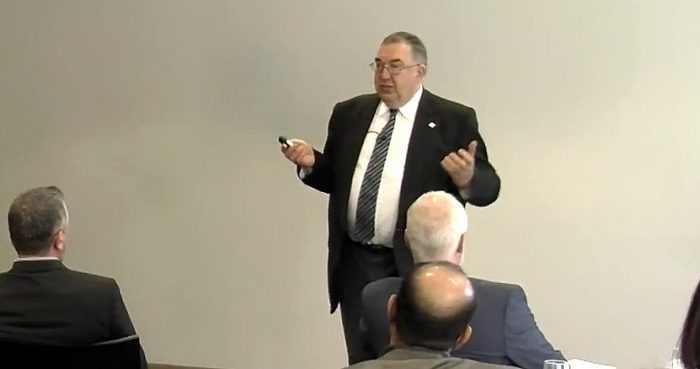Middle managers can inspire organizations if they have the right skills. The key is to have a multidisciplinary approach to your management development. A multidisciplinary approach to training sheds light on new perspectives, addresses the complexity of today’s world and helps adults learn more effectively.
Historically and still today, we lean on the highest levels of leadership to inspire change, progress and results. Seldom do organizations lean on middle managers to inspire big ideas, strategize, innovate, make financial decisions, or rethink how people performance is measured. That is changing. For leading organizations, the focus is on developing that “middle,” not as inspirational mystic-type leaders who can simply chart a path with TED talk type presentations but as those who are who they are: real-world managers who manage business, operations and people all at once.
Different Skills, Different Perspectives
Today’s business climate requires managers to develop an even broader range of skills than they did 10 years ago. Developing one’s range gives them the benefit of different perspectives. They can examine business issues from a financial, people, or strategic perspective. They can expand their thinking and solutioning beyond the basic functions of their business unit, a necessity for most managers today. Gone are the days of “my team” as managers now need to think and act on “how can my team fit and perform for the broader organization”.
This broadened view also allows middle managers to address prevalent challenges in middle management, such as micromanagement.
“It is difficult to be responsible for a team yet not feel as though you have the autonomy within your organization to take charge and make decisions freely,” says Rob Raimondo, Plumbing Operations Manager at Naylor Building Partnerships.
Over his 10 years of experience in management, Raimondo stresses how important different perspectives in business issues are for breaking barriers in teams and gaining trust without scrutinizing team members or being overbearing.
Diverse Skills and Today’s Complexity
Middle managers are the driving force behind getting work done. They are pulled in many directions from all directions. They experience the most burnout. They “put out the most fires” – yet when organizations train them, they tend to keep it simple, one-directional, and very linear. However, that does not reflect the work or challenges managers experience daily. Managers need a diversity of skills to tackle today’s challenges.
In particular, Raimondo encourages managers to develop expertise across the often-overlooked skills of innovation, communication, and finance: “The ability to be innovative can help bring fresh new ideas to the table with new concepts on how to further develop the business on the whole. The ability to be an effective communicator further enhances yours and your company’s goals and objectives.”
To him, financial acumen is the final piece to give managers clear insights on what KPIs to focus on to foster growth and profit.
Effective training programs address the need for diversity so that when strategy and finance join forces, the manager is better equipped to make business decisions in the moment on their team. A recent graduate of the management training program Management 1: The New Managers Course, Raimondo supports training programs as a means of redefining management at a higher level.

“I wanted to learn more about management styles, effective strategies and how to be a better manager not only for myself but for my team on all levels,” shares Raimondo.
How Managers Best Learn
A multidisciplinary approach to learning doesn’t just help managers develop new skills and perspectives; it also helps them learn, period. As those in adult learning would attest, adults learn more effectively when they can take new knowledge and anchor it to existing knowledge. Bringing different disciplines together in a room with different managers from different backgrounds creates a highly intricate learning experience. In this “organized chaos”, managers can combine their existing knowledge with multiple skills, including known and unknown. This stretches managers to think differently and develop different types of solutions using new tools. They transform into chemists combining the superpowers of strategy with the core principles of finance with a twist of innovation.
As organizations continue to navigate today’s waters and prepare for a bolder future, they can look to their middle managers to really inspire their organizations. They’ll just need to have the right multiple disciplinary skills delivered to them in a non-linear fashion, combining diversity and shedding new perspectives on how they manage their business, operations and people all at once.














